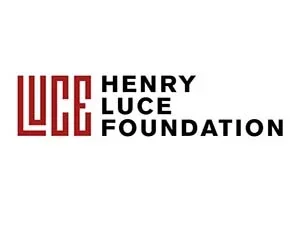$25,000 Awarded for Henry Luce Foundation Fellowship in Public Action
Bennington College has been awarded a grant of $25,000 from the Henry Luce Foundation to launch the Henry Luce Foundation Fellowship in Public Action for students studying at the College’s Center for the Advancement for Public Action (CAPA).

Beginning in summer 2021, this grant will support six-week internships for at least one Bennington College student per year for the next five years, focused on one or more of CAPA’s overarching initiatives: Activating Democracy, Art and Public Action, Environment and Public Action, Human Rights and Peacebuilding, and Progressive Education.
“This is such a wonderful opportunity for Bennington College students who have a serious commitment to public service to receive a fellowship for their Field Work Term,” said Susan Sgorbati, Director of CAPA. “We are so pleased that the Henry Luce Foundation has made this fellowship possible for CAPA students during this moment when it is more important than ever that students are involved in public action on the urgent problems of our time.”
Promoting innovative scholarship and cultivating a new generation of changemakers, this fellowship will offer Bennington students a unique opportunity to combine theory with real-world practice.
“The Henry Luce Foundation is committed to giving students and scholars the support they need to turn knowledge into action through experiential learning and active experience via Field Work Term” said Mariko Silver, President of the Luce Foundation and former President of Bennington College. “This is a hallmark of a Bennington education. We’re proud to help students learn to make change.”
During the College’s annual Field Work Term, the Luce Fellows will leverage their academic grounding in CAPA’s interdisciplinary curriculum to support the work of nonprofit organizations that are advancing these key areas of CAPA’s mission. Exploring questions of the democratic process, human rights, the environment, and the role that education and the arts play in promoting social justice, the Luce Fellows will engage in projects that further their understanding of these issues from an ethical standpoint.
Since the College’s founding, annual internship and work opportunities have been vital for Bennington students as they build work experience and skills and launch professional networks.
“Providing access to networks is paramount, especially now when many students are facing increased financial hardship and a lack of opportunities due to the COVID-19 pandemic,” said Faith McClellan, Associate Dean of Work-Integrated Learning. “We are grateful to The Luce Foundation for supporting this fellowship in Public Action, which will be particularly meaningful to our high-need students who may not otherwise be able to afford to accept unpaid internships at nonprofit organizations.”
Employers interested in partnering with Bennington College to offer Field Work Term positions in their organization are encouraged to visit the Recruit Bennington webpage for more information or to contact Sarah Clader, Associate Director of Career Development and Field Work Term, at sarahclader@bennington.edu.
About the Henry Luce FoundationFor more than 80 years, the Henry Luce Foundation has invested in knowledge makers and ensured that their work informs public discussion. This commitment to public knowledge derives from founder Henry R. Luce who created Time magazine to disseminate the most important news, ideas, analysis, and criticism to a mass audience.
Today, the Luce Foundation carries on this work by supporting projects at universities, policy institutes, media organizations, and museums, among many others. What these organizations have in common is a commitment to putting knowledge in the hands of the individuals and communities that need access to it. Hundreds of organizations have received more than 5800 grants totaling more than $1 billion since the Foundation’s establishment in 1936.
Over that long history, the Foundation played critical roles in strengthening the field of Asian studies, encouraging interfaith dialogue, raising the visibility of American art in museums and in universities, and increasing participation by women in STEM research and teaching. The Foundation looks forward to continuing its support of long-time areas of focus and to identifying new opportunities to strengthen public knowledge and understanding.